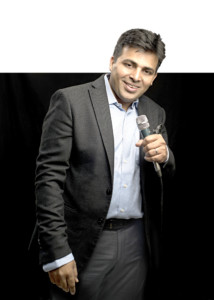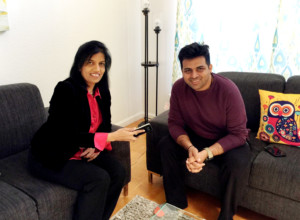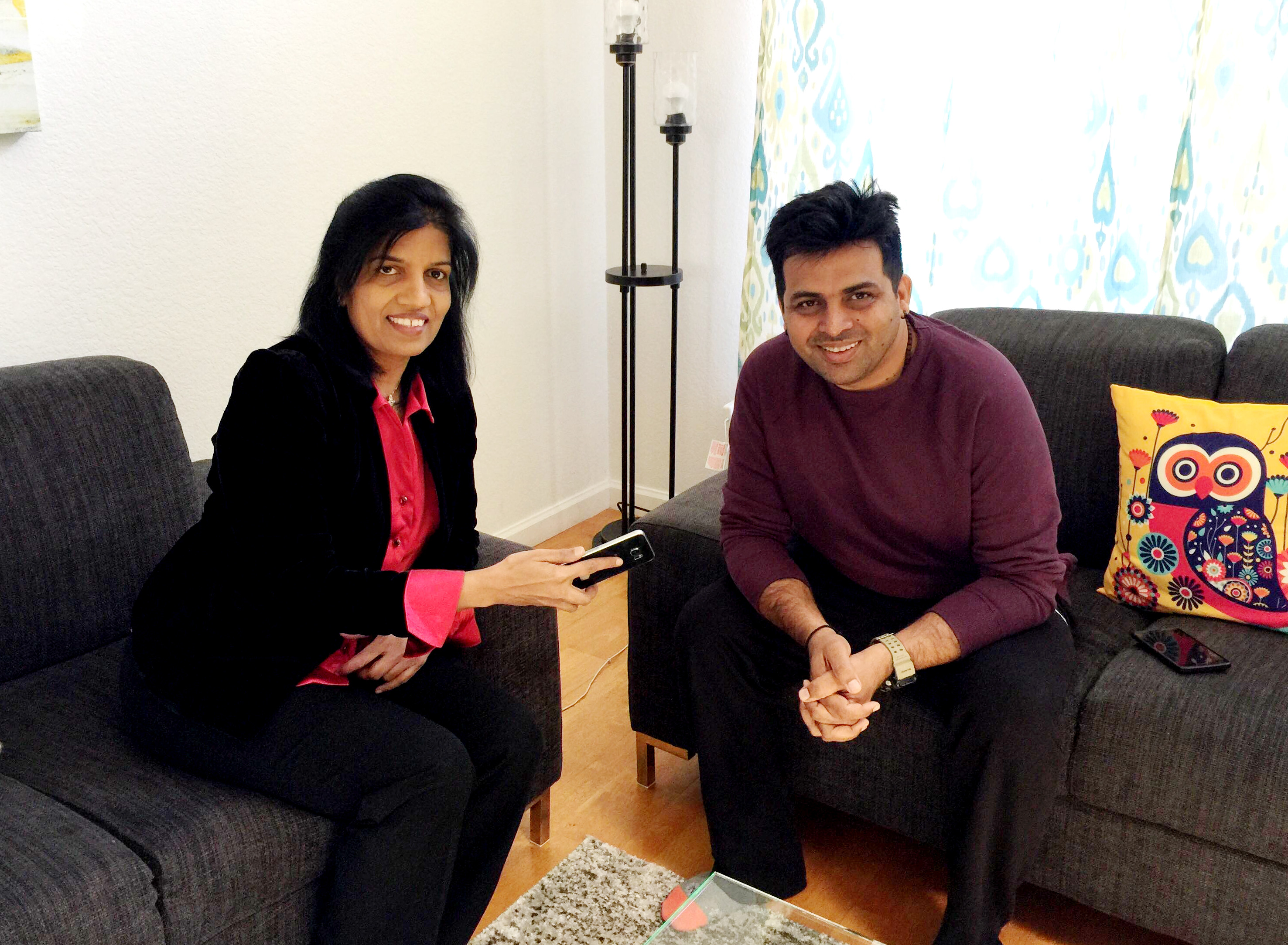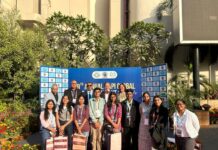 MILPITAS, CA: Stand-up comedian, host, and writer Amit Tandon was in Bay Area where he performed at ICC on April 19. Known for clean comedy Amit has performed across the globe. He opens up how he came to be a big success in comedy in this interview:
MILPITAS, CA: Stand-up comedian, host, and writer Amit Tandon was in Bay Area where he performed at ICC on April 19. Known for clean comedy Amit has performed across the globe. He opens up how he came to be a big success in comedy in this interview:
Ritu Maheshwari: Coming from an engineering and corporate background, how did you get into stand-up comedy? Were you passionate about this from beginning?
Amit Tandon: Actually, I was never planning to get into comedy. I got into comedy when I was thirty six year old. I was running my own business and there are open mic events everywhere. These are places where anyone can get on stage for 5 minutes and I started doing that as a hobby. After my business hours, I would spend couple of hours there and get 5 minutes on stage. My comedy was very different from what a lot of other people were doing because most of them were generally young kids. So, somehow people started relating to what I was talking about. I was talking about my home and family. First 2-3 years I just did open mic nights. After that comedy clubs started opening in India and started offering a small amount of money to come and perform. Next, corporate shows started happening where I started doing half an hour stints. They paid well. That’s when I started looking at it as a profession. A big change happened in 2016, when I started releasing my videos online. Then suddenly the recognition level was very different as people started liking the videos and started sharing it on what’s app and facebook. That changed everything for me in 2016. In the middle of 2016, international markets started opening for me big time. Since then, I have closed my earlier business and am in full time comedy business. For last one year I have done around 100 international shows and around 150-200 shows in total. So, that’s the current status. This is how it moved for me. Hobby – club show – corporate show – social media and international shows. I have performed in 15 countries so far across all continents.
RM: Your show is so real and relatable. How do you get inspiration for your themes?
AT: What I do in comedy is called ‘Observational Comedy’ genre. A lot of my comedy is about what happens on a daily basis. When I am writing, my focus is to write jokes that will resonate well with people. I think it connects with people a lot. For example, when you are on WhatsApp you get to see a hundred jokes every day. You see the jokes, laugh, but forget them in half an hour. When I write my piece, my focus is to write in such a way that people take home that joke. You would have lived that joke. There are jokes that never happen with you, so you listen, laugh and forget. However, jokes that have happened with you, you have lived through them, so when I tell that joke, that joke will stay with you. So that’s my process of writing and how I create my material.
RM: Who is your role model?
AM: I don’t have any role models as such. I like the comedy of a lot of people, from in India Raju Srivastav, Johnny Lever to Jerry Seinfeld, Bill Burr. But in comedy, you have to have your own style. You can’t be like another person. When you try to be someone else, you can’t be honest with yourself. When I tell my stories, those are Amit Tandon stories. For me, none of them is role model, but I learn a lot from them.

RM: To begin with did you have this talent inherent? How did you start?
AT: I am a writer who has improved his story telling skills by getting on stage multiple times. I used to write and direct plays during college time. I enjoyed picking up an observation and describe it. When you get on stage often, you learn what people are laughing at and I took it as my practice or ‘riyaz’ and improved.
RM: What are some of your upcoming projects?
AT: A project I am working on is “Tandon Talkies”. It is about hundred years of Indian cinema. That’s very different from what I have done so far in comedy. It talks about how Indian cinema evolved. It is going to be a comedy, but with a strong story writing and a lot of things people don’t know about Indian cinema. It would be an interesting mix. It will be a live comedy show.
RM: Do you see a difference in live stage performance and on screen performance as you have done both.
AT: In television, you are talking to a camera, whereas in a live show, you have to connect with the people. Every day, audience changes and I am in different city performing. It is a constant challenge to keep them engaged for 90 minutes. You have to adjust to audience reaction. There is no retake in live shows. Sometimes there could be technical difficulties such as power outage, mic issues or people squabbling. Delivering show in these situations is very different than performing on television.
RM: Tell me something about your life away from stage. What are your other interests?
AT: I have a family – 2 kids (13 and 12) and a wife. I am an engineer, an MBA and a Punjabi from middle class background. I love spending a lot of time with my family and kids and just being with them. Also, I made my interest as my job, so everything I do is of my interest.
RM: In today’s ultra-competitive world, how can youth develop non-academic skills?
AT: I think today it is a competitive world but number of opportunities are also large. Exposure is high, you can see what all are the options available. You can find about them sitting at home. You can figure out about comedy, acting, or being a chef for example. There are structured programs to explore these. Today it is a bit easier than earlier times. Earlier only option was to get a bank job, become engineer or a doctor. Living in a middleclass environment, you would not get any exposure to other professions. Today it is very easy to get exposure. However, it is very important for you to work hard. Non-academic skills are easier to gain from YouTube or other websites. It helps you evaluate yourself as to if you are good at it or not. Schools also have more opportunities. But, at the end of the day, you need to take that risk of making an effort and taking the stage. You need to get used to getting a lot of rejection in the beginning. When we get on stage, we need to be mentally ready that people may not laugh.
RM: You have so many fans in India and outside. What difference do you find among them?
AT: There is a little bit of difference. When I go to US or other countries, fans are hungrier to get a slice of life from back home. They are not getting enough of that. So, when they hear stories, they enjoy it a little more.
RM: Any message for your fans?
AT: A message – The world is getting a little angrier than before, so please develop a sense of humor and try taking things in your stride and not take offence at things easily. I joke about my wife, kids, father and I am not insulting them. There is a difference between insult and joke. When I tell a joke, it is not an insult to anyone.
Amit Tandon is currently on a US tour and is performing in many cities in coming days: Here are the shows: 04/26 – Las Vegas ; 04/27 – New Jersey; 04/28 – Chicago; 04/29 – St. Louis; 05/04 – New York; 05/05 – Boston; 05/06 – Orlando
Ritu Maheshwari
India Post News Service







